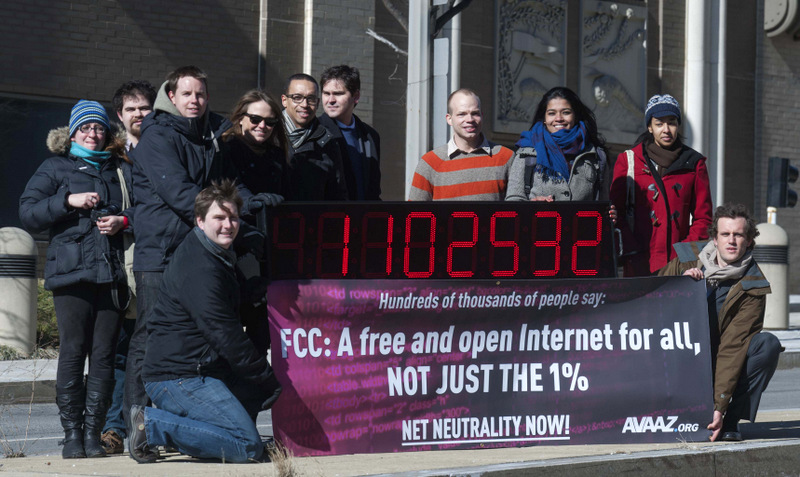
On Thursday, the Federal Communications Commission will vote on rule changes that would permit Internet service providers to charge application providers more for untethered access. Several commissioners and 11 senators, among others, argue that this plan — which effectively creates an Internet “fast lane” for those willing and able to pay for the privilege of using it — negates the concept of free and equal Internet access and unduly erodes the notion of net neutrality.
FCC Chairman Tom Wheeler’s proposed changes would, in effect, leave much of the “fast lane” proposal as is.
The largest change would introduce a public comment period on whether the FCC should reclassify broadband as a communications utility. As a communications utility, broadband would be a “common carrier,” in which traffic from or to a user cannot be slowed or halted for reasons other than network management reasons — such as blocking spam or easing congestion. Under “common carrier” rules, a network owner cannot discriminate between classes of consumers or individual consumers that are in good faith with the service provider.
Broadband as a “common carrier”
Declaring broadband a communications utility, however, is an option that has received opposition from the major ISPs, such as Verizon, which seeks the authority to control the use and access of its infrastructure.
The establishment of a public comment period does not mean the FCC must consider a change to the rule, as public comment periods are non-binding and designed simply to allow the public a chance to register their opinions on a rule change.
Wheeler, however, has addressed some concerns concerning the creation of “fast lanes” by seeking to specifically ban certain types of traffic prioritization deals, such as ISPs granting preferential treatment to subsidiaries that make or stream content. This would prevent “vertical channels” — mega corporations that control both the production and distribution of media — from pricing smaller companies out of the market. For example, the video-on-demand service Hulu is partially owned by Comcast, the nation’s largest ISP. A “fast lane” deal with Hulu may ultimately be unfair to a rival company, such as Netflix.
The proposal, however, would leave room for public-interest prioritization deals — for example, the delivery of medical records — at the FCC’s discretion. Wheeler also has also proposed the establishment of an ombudsman at the FCC charged with serving as a net neutrality advocate for startups and consumers.
The chairman has been under pressure to come up with new net neutrality rules since January, when a federal appeals court overturned the FCC’s Open Internet plan on the basis that the commission did not offer satisfactory justification for what the court saw as a discriminatory act.
Net neutrality
Wheeler’s original proposal was designed to address perceived inequalities between application providers that are currently demanding large swathes of available bandwidth, such as Netflix, and smaller consumers. It would permit the network owners to charge a higher fee for direct access to an ISP’s “backbone,” or Internet connection, instead of being forced to go through third-party ISPs, as long as the owners offer similar access to other consumers at “commercially reasonable” terms.
Net neutrality proponents have argued that this proposal would discriminate against smaller customers, who would be forced to deal with a smaller portion of the bandwidth pipeline because of their inability to pay.
Last week, a coalition of technology companies — including Google and Netflix — issued a non-publicly disclosed letter to the FCC protesting Wheeler’s initial proposals.
“Instead of permitting individualized bargaining and discrimination, the commission’s rules should protect users and Internet companies on both fixed and mobile platforms against blocking, discrimination, and paid prioritization, and should make the market for Internet services more transparent,” they wrote. “The rules should provide certainty to all market participants and keep the costs of regulation low.”
Additionally, 11 Democratic senators have written to Wheeler, urging him to abandon his “fast lane” proposal. The FCC has been flooded with nearly 35,000 letters and emails in regards to the rule changes and the commission’s telephone switchboards have reportedly been ringing off the hook.
However, with the commission’s two Republican commissioners refusing to consider any net neutrality rules, the two people that Wheeler must work to get on his side are Mignon Clyburn and Jessica Rosenworcel. These Democratic commissioners have both declined to comment about the revisions to Politico, but last week, Rosenworcel called for the vote to be delayed.

